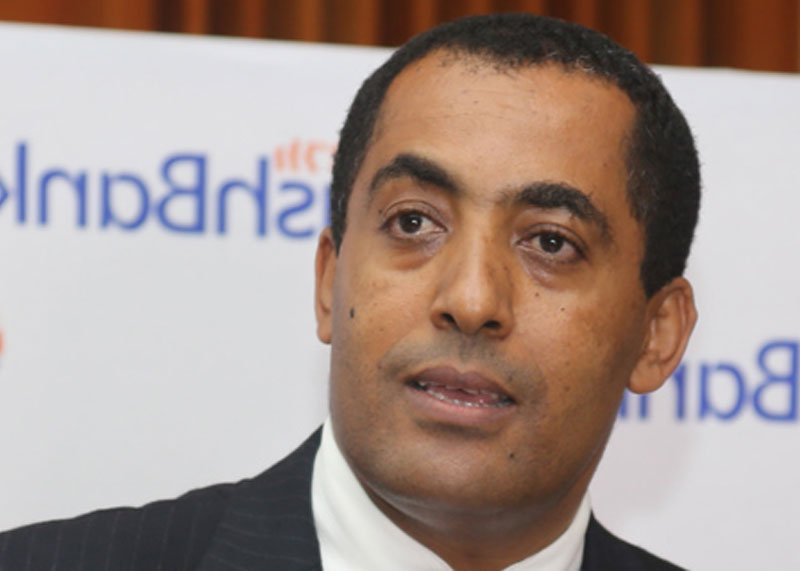
The central bank's treasury bill (T-bill) auctions continue to underperform as recent measures from the regulatory body jeopardise banks' liquidity positions.
Financial and non-financial institutions offered eight billion Birr at an auction held on September 22, 2021, a far cry from the 30 billion Br issued by the National Bank of Ethiopia (NBE). Another auction held almost three weeks ago produced results no different from last week, showing how much the administration's effort to deal with the budget deficit without borrowing from the central bank has been undermined.
T-bill market is used as a monetary instrument to raise funds in short-term debt obligations by central banks. Backed by a government guarantee, they have a shorter maturity period, although they may pay a higher interest rate if the maturity date gets longer.
The administration of Prime Minister Abiy Ahmed (PhD) uses T-bills to trim down direct lending from the central bank to address its budget deficit, which stood at 123 billion Br at the end of the last fiscal year. The deficit is projected to reach 139 billion Br this year, though it is likely to increase due to cuts in official grants from development partners. This week, the UK's Foreign, Commonwealth & Development Office announced a programme cut to Ethiopia to 107.5 million pounds sterling (147 million dollars) next year, down from 240 million pounds sterling this year.
Ethiopian authorities, who received a nod for 406 million dollars in the disbursement of the IMF`s Special Drawing Rights last month, had hoped to narrow the budget gap through an additional supply of T-bills. The central bank has floated more than 200 billion Br in T-bills this fiscal year, receiving offers for 122 billion Br. This was supply representing a 10-fold increase from auctions held during the same period last year.
The T-bill market has always been characterised by oversupply, says Patrick Heinisch, an economist and capital markets researcher.
Ethiopia`s economy is besieged by fiscal challenges resulting from the COVID-19 pandemic, civil wars and drying up of external sources of finance with a suspension of budget supports from major donors. However, the central bank`s policy measures restricting transfers, forex retention, loans and advances have created anxiety in the financial sector. Effective since the beginning of this month, banks were given until the end of November to double their reserves at the central bank to 10pc of deposits mobilised.
Banks and insurance firms are major clients for the T-bill market, competing against the pension fund. The big portion of the fund raised through auctions this year came before the central bank introduced regulations that further test the liquidity position of commercial banks.
Their focus is on meeting the reserve requirement, according to Dereje Zenebe, president of Zemen Bank.
Zemen Bank plans to invest in T-bills once achieving the minimum reserve the central bank requires of it.
Another regulation from the central bank forbids the early redemption of T-bills, also effective beginning this month. This was a measure introduced as early redemption interfered with the government`s budget administration, according to Fikadu Digafe, vice governor and chief economist at the central bank. Banks can consider other options to mobilise funds, such as borrowing from the central bank, rather than early redemption.
Awash Bank, which took part in the auctions before the central bank banned early redemption, is also shifting its focus to meet reserve ratio requirements.
"We could redeem our cash anytime we wanted," said Tilahun Geleta, chief finance and facilities management officer at the Bank, which surpassed the 100 billion Br mark in deposits collected last year.
Tilahun finds the recent measure understandable, as the country is in the midst of war, and the government wants to bring excess liquidity in the economy back to the banking system.
Experts see animating further interest in treasury bills as a daunting task, considering the state of the financial sector.
Heinisch recommends accepting bids at a higher yield and keeping inflation at bay to incentivise bidders. During the latest auction, the 91-day T-bill received a higher yield of 11.1pc, against the lowest at 7.9pc made for 28-day bills. Both are much lower than the interest banks offer on time-deposits, which go as high as 13pc, and significantly lower than headline inflation, surpassing 30pc last month.
"The government must ensure that inflation does not rise any further to incentivise bidders to invest in T-bills," said Heinisch. "This will be difficult to achieve in the short term, though."
Authorities at the central bank reformed the T-Bill market in 2019, allowing individuals and financial institutions to take part in offering a market-based interest rate. However, banks, insurance firms and pension funds remain the primary players in the market. The almost non-existent role of the private sector and the negative real rates remain an issue, says Alisa Strobel, a senior economist for Sub-Saharan Africa at IHS Markit.
According to the economist, there is a stronger preference for short-term instruments rather than longer-term T-bill buys in Ethiopia.
Macroeconomic fundamentals need to be put back into place through tighter monetary policy by continuously restricting the growth of reserve money, according to Alisa.
PUBLISHED ON
Sep 30,2021 [ VOL
22 , NO
1118]

Commentaries | Jan 01,2022

Sponsored Contents | Oct 25,2021


Viewpoints | Nov 29,2020

Radar | Jun 19,2021

Featured | Jan 03,2021

View From Arada | Dec 19,2021

Radar | Apr 13,2025

Radar | Nov 28,2021

Fortune News | Jul 11,2021

Dec 22 , 2024 . By TIZITA SHEWAFERAW
Charged with transforming colossal state-owned enterprises into modern and competitiv...

Aug 18 , 2024 . By AKSAH ITALO
Although predictable Yonas Zerihun's job in the ride-hailing service is not immune to...

Jul 28 , 2024 . By TIZITA SHEWAFERAW
Unhabitual, perhaps too many, Samuel Gebreyohannes, 38, used to occasionally enjoy a couple of beers at breakfast. However, he recently swit...

Jul 13 , 2024 . By AKSAH ITALO
Investors who rely on tractors, trucks, and field vehicles for commuting, transporting commodities, and f...

Jun 28 , 2025
Meseret Damtie, the assertive auditor general, has never been shy about naming names...

Jun 21 , 2025
A well-worn adage says, “Budget is not destiny, but it is direction.” Examining t...

Jun 14 , 2025
Yet again, the Horn of Africa is bracing for trouble. A region already frayed by wars...

Jun 7 , 2025
Few promises shine brighter in Addis Abeba than the pledge of a roof for every family...